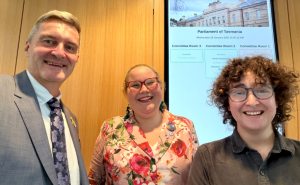Lynn Conway is maybe not a household name, but it’s almost certain her work had an effect on most households in the modern world.
Conway was a tech pioneer who in the 1970’s developed a new method of microchip design that is now used in everything from smart phones to televisions and modern veichles.
After she retired from the technology industry she came out as transgender and shared details of her personal journey.
She passed away on 9th June, her passing publicly announced by the University of Michigan where she served as an emeritus professor. She was 86 years old.

Born in 1938 in White Plains, New York, her career began in the 1960’s. After graduating from Columbia University, she joined a top-secret computing project at IBM.
When the company learned of her plans to transition gender she was fired, something she later described as like being forced to start her career all over again with a new identity.
Joining the team at Xerox’s PARC research lab where she worked with California Institute of Technology professor Carver Mead to develop a technique known as ‘Very Large Scale Integration (VLSI)’ which was a set of rules for constructing microchips effectively.
Later in her career she joined the USA’s military research agency DARPA, before moving into academia. In recent years her contribution to computer science has been more widely recognised.
She joined Michigan Engineering’s faculty in 1985 as associate dean for instruction and instructional technology. While she retired from U-M in 1998, Conway remained an influential part of the community—advising faculty members, speaking at events and even having lunch with students on occasion.
In 2020 IBM made a public apology for firing her over half a century earlier.
In recent years Conway began to get recognition for many of the groundbreaking developments she’s been part of in the 1970’s, as where previously her male colleagues had been lauded for their work with little acknowledgment of her impact. She coined the term ‘The Conway Effect’ to describe the process of transgender people being sidelined from history.
Speaking of her passing, Michael Wellman, the Lynn A. Conway Collegiate Professor and the Richard H. Orenstein Division Chair of Computer Science & Engineering at Michigan University said Conway was someone who showed great courage.
“Lynn Conway’s example of engineering impact and personal courage has been a great source of inspiration for me and countless others. I was privileged to know her as a colleague and honored to hold a collegiate professorship in her name,” Professor Wellman said.
She is survived by her husband, Charles “Charlie” Rogers, whom she met in 1987. They shared a passion for adventure sports, including whitewater canoeing and motocross racing.
Image of Lynn Conway by Charles Rogers. Published via a Creative Commons CC-BYSA 2.5 license.




